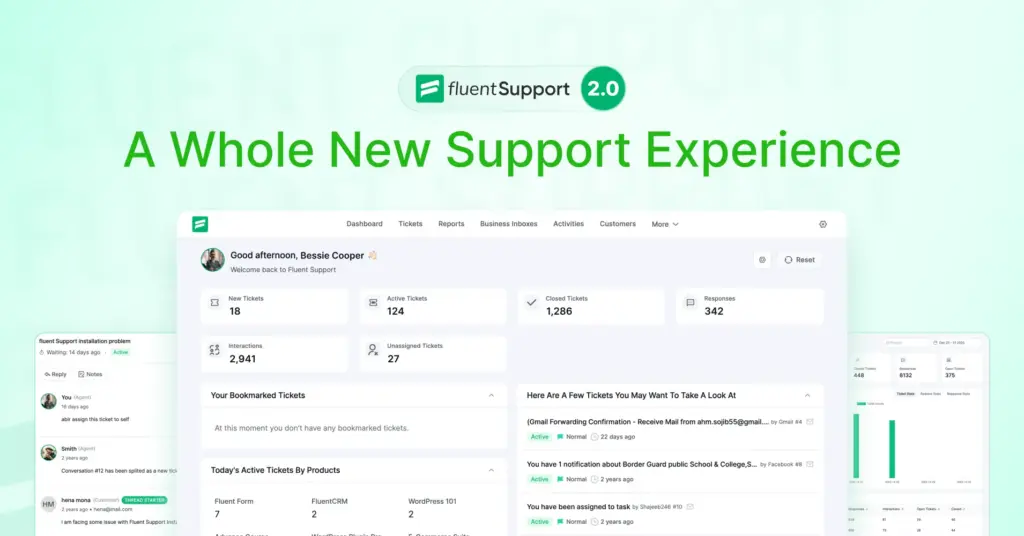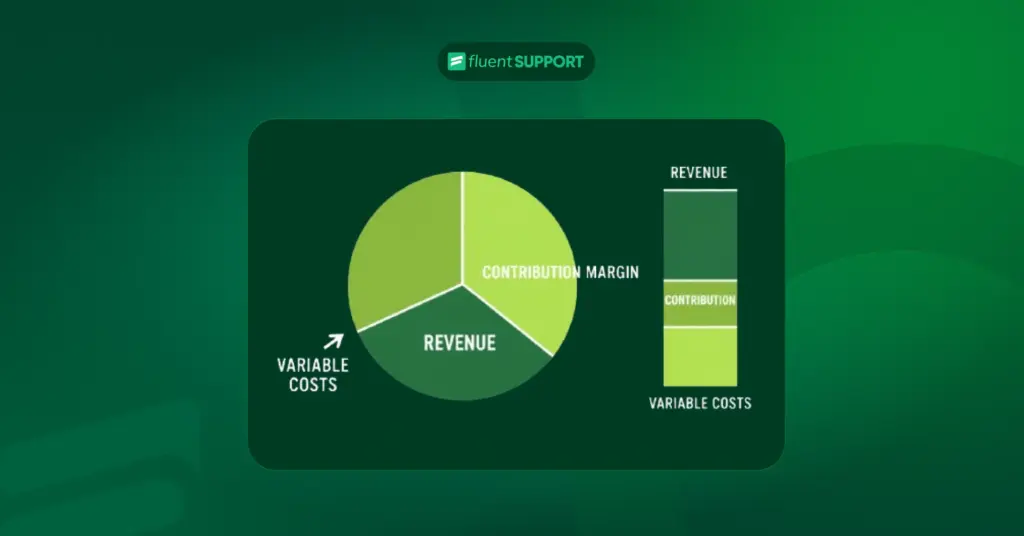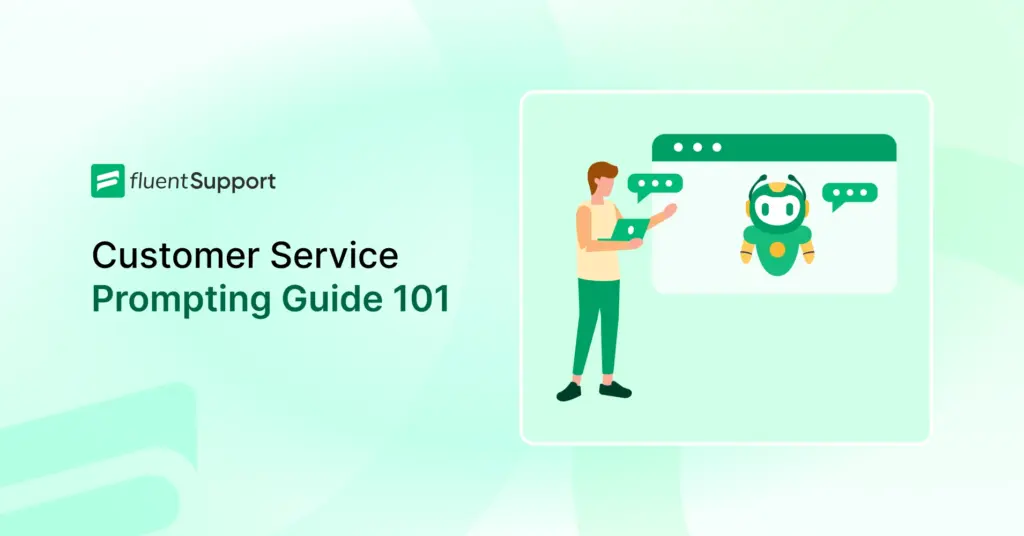
What is a Customer Success Manager and What Do They Do?
By Nishat Shahriyar
July 20, 2022
Last Modified: May 22, 2024
A customer success manager helps new customers with the onboarding process and get used to products or services.
Attracting new customers is hard, but it is hard to retain those customers. After a customer purchases, you need to help the customer understand your products’ full value. That’s what a customer success manager does.
Customer success managers (CSM) are customers’ go-to people when they face problems after a new purchase. Customer success managers understand customer’s pain and focus on long-term needs. CSM grows a long-lasting customer relationship providing real-time value your business or brand offers.
In this blog, we’ll cover what a customer success manager is, what are their responsibility, and what skills one needs to become a customer success manager.
What is a customer success manager?
Customer success managers (CSM) help new customers go through the sales funnel, finish the purchases, and become active users of your business. The role is also labeled as client success manager sometimes.
CSMs are like mentors who serve a hybrid role between sales, customer service, and customer support. They build direct relationships with customers and provide real-time solutions. Customer success managers focus on long-term relationship building with customers to cultivate customer loyalty.
CSM ensures customers are achieving the goal they were trying to achieve with your product and upsell new features of your products to your existing customers. Often CSM stays with the customers as long as they are your active customers. It helps build long-term loyalty with customers.
CSM proactively offers help to customers before the problem arrives, differentiating them from customer service or customer support. It helps business to retain existing customers and reduce churn. As a hybrid role, CSM has to do lots of things. We’ll look at these in the customer success manager job description below.
What does a customer success manager do?
More and more companies are now investing in customer success manager roles. Because they dramatically increase customer experience and play a key responsibility in creating value for customers using the product.
CSM not only works directly with customers but works directly with sales, marketing, support, and product teams. They can easily collect various customer support data and help other teams with their customer service metrics.
Customer Success Manager Job Description
A customer success manager ensures:
- Users are perfectly onboard with the products or services your business offers.
- Users have the right guide, tools, and support to use the product.
- They are using the product perfectly and getting the most value out of it.
- Collecting customer data at every point of communication.
- Pass the data and customer behavior information among sales, marketing & product teams.
- Upselling existing customers on new product features.
- Keep your customers informed about upcoming features, product roadmaps, collect feature requests and deliver them to the product team.
From a customer’s first interaction with your brand to becoming a new customer, CSM guides and mentors customers to become pros at using your products. CSM increases product value through their day-to-day interaction with customers offering proactive support and building customer loyalty.
Top responsibilities of customer success managers
CSM responsibilities differ from customer support. They focus on customer needs, identify the problems before the customer encounters them, and offer solutions proactively.
Here are the top responsibilities of a CSM, in detail-
1. Onboard new customers
The biggest responsibility of a CSM is onboarding new customers. Every new customer only needs one thing after a purchase, education. They need education on how to use your product’s features and functionality.
A CSM helps customers to get clear objectives that ensure they have a realistic goal with your products. CSM’s job is to provide them with the necessary tools and support to achieve their goals. Bad onboarding experience frustrates new customers, which increases customer churn rates and impacts overall brand images.
Client success manager works with new customers directly, which helps them cultivate personal-level connections. They guide new clients and speed them up with education. So customers can achieve their goals faster.
2. Advocate your brands
CSM works directly with customers. Most times, it is a one-to-one interaction. CSM has many opportunities to influence customers.
CSM is more like a brand ambassador of your business. They don’t explain to customers they value your brand offers and how it can solve a customer’s problem; they influence customers to refer your brand to their friends.
CSM acts as a bridge between customers and businesses. They have greater access to product development and future upgrades. They also know customers’ pain points. They know what customers want from your products. They share this information with both parties and keep them in the loop.
3. Building on meaningful customer relationships
While others focus on solving customers’ problems or product bugs, CSM focus on building meaningful relationships with customers for the long term. CSM makes it easy for the customer support team to solve small or short problems.
CSM has a unique view of customers’ problems because of one-to-one connection, so they can explain customer problems better to support agents. Thus saving time for both parties.
The main job of a CSM is – “build a personal level connection with a customer, so they can feel more valued and use your product more!”. A strong bond will make new customers more comfortable to ask you anything, learn about your product use faster and implement it for their use. Not only does this satisfy current customers, but it also makes them advocate for you and refer more new customers to your business.
4. Build customer loyalty
CSM focuses on customer relationships so they can earn customer trust quickly. Customer success managers can increase retention by helping users onboard faster and more easily. However, working with customers daily can provide customers with a positive view of your business.
They understand customer needs and offer proactive support. Customer satisfaction goes through the roof. Ultimately it increases customer loyalty.
5. Keep customer engagement high
CSM interacts with customers often. They are the reason why most businesses have high customer engagement. Client success manages regularly checking with clients to inform them about new and upcoming product features, and bug fixes & collect customer feedback.
CSM also checks if customers use the products or services regularly. Customers will stop engaging with your products if they don’t see any value. CSM has to identify those customers, connect with them, and show them how your brand can fulfill their needs using practical use cases. In most cases, CSM’s direct communication with every customer keeps the customer engaged with your brands.
6. Voice of customers
CSM often acts as the voice of customers. Often company teams have little interaction with customers. Customer success managers directly connect with customers, so they know more about customers’ problems, what they are facing with the products, what they are complaining about, and what improvements they want.
CSM can share this information with the development team directly. It will also make customers feel part of the brand as they will see their voice is heard and their suggestions are included in product development. It increases customer trust, boosting renewals and sales.
7. Knows when to upsell & cross-sell
Customer lifetime value is an important metric for a business’s long-term growth. It depends on how much upselling & cross-selling are happening in your company.
Upsell is when you encourage customers to purchase additional features or add-ons that are part of the core product. Cross-selling is when you sell a different kind of product, often not related to customers’ previous purchase but can increase their overall experience.
CSM is the perfect person who knows when a customer needs additional features to upgrade their core purchase or when it is necessary for them to buy other premium products to boost customer experience. CSM can upsell and cross-sell in these perfect moments, making those deals successful. Because the trust CSM builds with customers from day-to-day interaction provides great value, customers will listen to their suggestions more than anyone in your business.
8. Reduces customer churn rates
The main focus of a CSM is to create a lasting buyer relationship with a customer, which builds a loyal customer base who come back to buy more for your business. Most client success managers focus on reducing customer churn through selling opportunities, renewals, and offering occasional discounts.
CSM keeps track of customer satisfaction scores, renewal dates, cross-selling opportunities, customer activity, and engagements. CMS reaches out to inactive customers when their activity and engagement are low. It helps to know about the problems, offer reasonable solutions, and retain these customers.
9. Collect and analyze customer feedback
Customer feedback is another important customer service metric. Businesses should always collect and analyze customer feedback to stay informed about customer behavior. Most times, brands rely on customer service and support teams to collect customer feedback. Sometimes occasional surveys are run to collect those.
But these are last resort places for customers. On the other hand, CSM has direct contact with customers. From a new customer onboarding process to their subscription life, they know everything about that customer. CSM knows what they want, what is essential for a great customer experience, and what needs to improve the product.
CSM can gather this information quickly from customers and deliver it to the right department. And your teams can act accordingly with the use of the information. If brands are not listening to their customers or not collecting feedback, they are missing out on what their customers think about them.
If you ignore customers’ suggestions regularly, customers will not hesitate to move over to your competitors. CSM should always check with customers, collect feedback, and ensure customers that their suggestions are being considered.
Customer success manager skills & qualifications
Customer success manager has to do a variety of work as their role is a hybrid of customer service, sales, and customer support. Here are some essential skills & qualifications for CSM positions.
1. Empathy
CSM works directly with customers. If you do not feel what customers are feeling and can’t understand customers’ pain points, then it will be hard for you to provide them any solutions. Here comes EMPATHY.
We already discussed how a lack of empathy could be the main ingredient of a bad customer experience. CSM is a customer-facing role. Any customer service role in any business needs empathic people. Empathy helps you put yourself in customers’ shoes, feel them, and understand their problems—That’s how you can then provide solutions to those problems more accurately.
Empathy will also help you manage the expectations of your customers. It is not possible to provide solutions for customers every problem. You will have to manage customer expectations in an empathic way so they don’t feel let down by your solutions.
2. Communication skill
Communication is an essential part of a CSM’s daily job. You need to stay in touch with your customers constantly.
You have to listen to your customers. Using active listening, you must show them you genuinely care what they are going through. Active listening is a communication practice where you listen to your customers and repeat back to them using your own words. It is the most effective way to cool down angry customers or confused ones.
CSM has to obtain skills like proactive communications, social and writing skills. You have to conduct online and offline meetings with customers, which requires good presentation skills. As a CSM, you have to influence people to buy products or services and explain how these can solve their problems and make their money.
CSM roles are all about proactive communications. When an opportunity arrives, you must notify your customers and help them make the most out of it. It will help you win their trust and ensure success.
You have to be informed about every aspect of the system to educate your customers effectively. Customers will pass if you can’t define solutions or product benefits clearly.
3. Product knowledge
Success managers should have full knowledge about the business, product, or service they offer. You have to know in-out of your company policy and terms. Customers expect you to offer the best practices of the products to get the best value and troubleshoot problems when they need them. As a CSM, you have to be an excellent problem solver. You’ll have to provide solutions for customers’ short-term or long-term needs.
But it will not be enough to earn customers’ trust with product knowledge. You’ll need enough industry knowledge to know about customers’ business. The more you know about the industry your customers are from, the more you can undertones their needs and goals.
Vast knowledge will help you stand apart in your customer’s eyes as an expert in the field and help you develop creative solutions to impress your customers.
4. Time management
Every day, CSM has to deal with multiple customers and their problems. You have to lead several meetings, train, and troubleshoot problems. You’ll need to prioritize tasks to manage your time because you can’t do everything in your work time.
CSMs need to have strong organizational and project management skills to get the job done. Often you’ll need to multitask. You don’t want to make your customers feel abandoned. So you will need strategic planning ahead of time.
CSM’s job is not only to teach customers how to use your products; your job is to help them see the bigger picture and unlock more benefits using your products. That’s why you need to spend more time learning about each customer’s needs because every customer uses a product depending on their unique needs.
5. Leadership skill
CSM manages communication between the product team, customer service team, and often customer support. Most times, you’ll have to mentor recruits or junior executives. CSM’s vast expertise and full bird-view ability to see customers’ problems through their personal connection with customers makes them the best person to lead the team.
CSM has more knowledge about the products and users than any team. They can educate others about customer relations and provide better insight into product development.
6. Relationship management
CSMs are your business’s relationship expert managers. They keep customers happy and engaged with the product. Client success managers have an open line with customers from day one. They regularly keep in touch with customers. So every time problems arise, they will be solved immediately.
CSM is not focused on single sales; its goal is to increase customer retention. You have to lean into feature-benefit selling rather than following traditional marketing. Relationship management is how often you interact with your customers and how much value a customer gets from these communications.
7. Customer-first mindset
CSM roles are not simple customer service jobs. You have to give your full attention to customers. Your goal is to make them successful. The more you invest your time learning about their needs and problems, the more you can provide effective solutions.
It is your job to identify problems before customers encounter them. CSM looks for customers’ business and proactively offers solutions before customers ask for them. You must monitor various customer service metrics to learn about customer happiness and behavioral data. CSM will have the soft skills to identify red flags before they become customer complaints and contact customers with potential solutions.
Client success managers inform customers of new product updates, generate excitement about new features, and offer demos. If customers are interested, CSM helps them try the new product or feature by giving education. CSM can organically upsell to customers because they have a deep understanding of customer’s needs.
Conclusion
More and more companies are now investing in customer success manager roles. It is becoming an important part of customer-centric companies around the world. CSM is now fulfilling leadership positions for business while building personal connections with customers and delegating multiple teams. You’ll need soft and technical skills to succeed in a CSM role.
CSM knows everything about their customers, has product knowledge, and offers a proactive solution even before their customers face problems. They care most about their customers and brainstorm new ideas to make customers more successful by using their products. At the end of the day, CSM is the business’s money maker who makes customers success their success.
Start off with a powerful ticketing system that delivers smooth collaboration right out of the box.












Leave a Reply